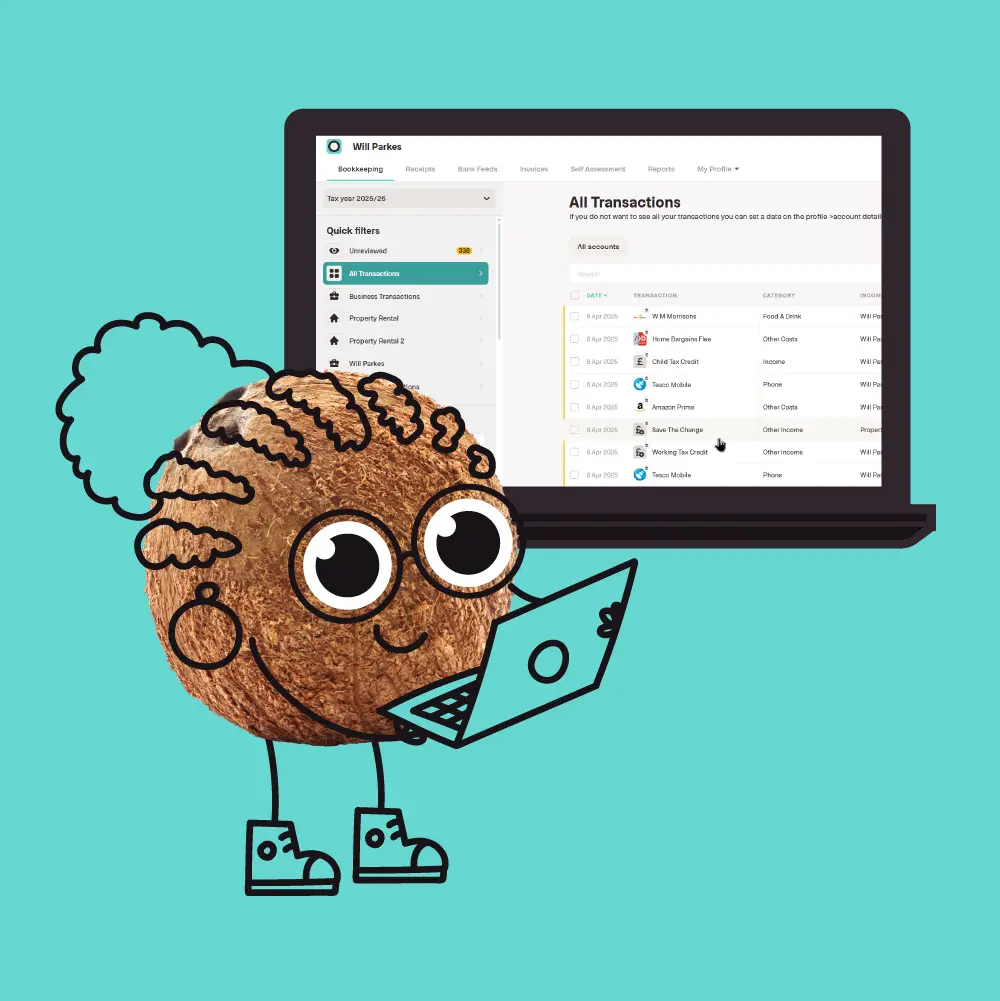If you’ve ever found yourself confused by accounting jargon, you’re not alone. One of the most common questions we hear from sole traders is:
“What is cash basis accounting – and do I need to use it?”
The good news? Cash basis accounting is one of the simplest ways to manage your business finances. Let’s break down what it means, when it makes sense to use it, and how Coconut makes it even easier.
What is cash basis accounting?
Cash basis accounting is a method of recording income and expenses only when the money actually comes in or goes out. That means:
- You count income when your client pays you
- You record expenses when you actually pay for them
You don’t need to worry about invoices you’ve sent but haven’t been paid for, or bills you’ve received but haven’t paid yet.
It’s a straightforward way to see what’s really in your business bank account at any given time, which is why it makes sense for many sole traders.
Is there an alternative to cash basis accounting?
The alternative is known as accrual accounting (also called traditional accounting). This means:
- You record income when it’s earned (even if you haven’t been paid yet)
- You record expenses when they’re incurred (even if you haven’t paid them yet)
This approach gives a fuller picture of your business’s financial position, but it’s more complex and often unnecessary for smaller businesses.
Who can use cash basis accounting?
Most sole traders and landlords can use cash basis accounting. It’s the default method HMRC recommends for small businesses and is especially handy if you're just getting started or want to keep things simple.
You can’t use cash basis accounting if your business is a:
- Limited company
- Limited liability partnership
- Partnership with one or more corporate partners
Why use cash basis accounting?
Here are some of the biggest benefits:
It’s simpler
You don’t need to deal with unpaid invoices or work out what’s “owed” – just record the money as it moves.
It’s better for cash flow
You’ll only pay tax on the income you’ve actually received – not what’s still outstanding. That can be a huge help if clients sometimes pay late.
It’s easy to manage with tools like Coconut
Coconut was designed with simplicity in mind. Track your income, snap your expenses, and stay on top of your tax with tools built for how you actually work.
Should you use cash basis accounting?
If you’re a sole trader or landlord with straightforward income and expenses, cash basis accounting is probably your best bet.
You might want to consider traditional accounting if:
- Your business has complex finances or high levels of stock
- You’re applying for a business loan and need to provide detailed accounts
However, for most self-employed people, cash basis accounting is the simplest, most stress-free option.
How Coconut makes your finances simple
Coconut makes invoicing and expense management for sole traders and landlords a breeze.
With Coconut, you can:
- Track income and expenses automatically from your bank account
- Snap and store receipts digitally
- Categorise transactions for tax
- See how much tax you owe in real-time
- Submit your tax return directly to HMRC, fully compliant with Making Tax Digital (MTD)
Start your 30-day free trial now.











